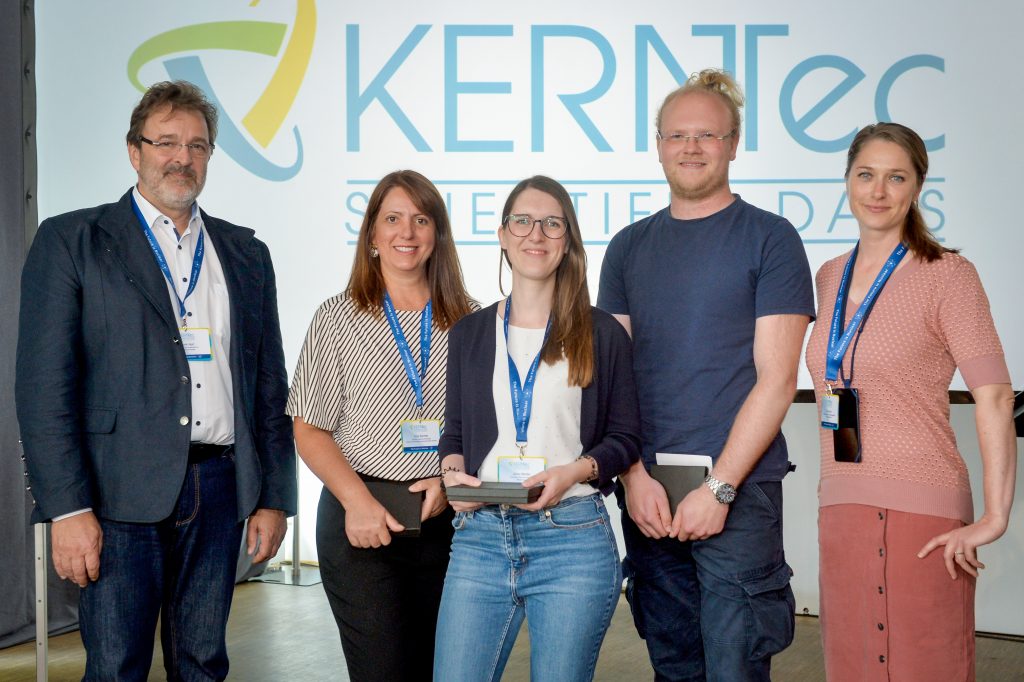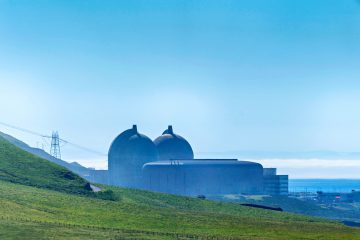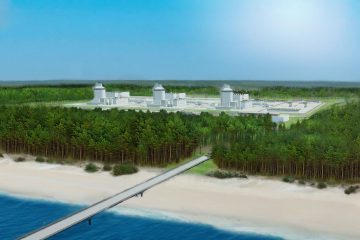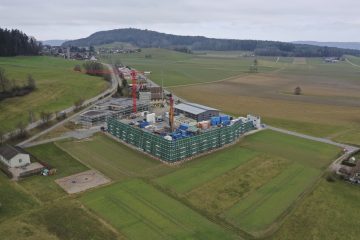Recruiting young talent and a spirit of optimism for nuclear technology in Germany
From 13 to 15 June 2023, Frankfurt am Main hosted the first KERNTec was held as a new joint event format organised by Kerntechnik Deutschland e.V. (KernD) and Kerntechnischer Gesellschaft e.V. (KTG). The aim of the event was to introduce young people with a technical or scientific background to nuclear technology and to network them with companies and research institutions. The aim was to convey the fascination of nuclear technology as an interesting, diverse and important field of activity and to draw attention to the great opportunities that are currently developing throughout Europe and internationally. For example, the European Nuclear Alliance of the 15 nuclear-friendly EU member states expects an EU-wide need for 450,000 employees over the next 30 years, 200,000 of whom will be highly qualified. This development should not and will not bypass the German industry.
Main actors of the KERNTec The event was therefore aimed at students - including those from the field of nuclear technology - who were able to present their research topic or current field of activity in a short, easy-to-understand and entertaining way in the Science Slam. The contributions to the Science Slam were evaluated by the event participants and the best were awarded prizes, with KTG offering prize money totalling €2,000.

Alena Wernke from the Karlsruhe Institute of Technology (KIT) took first place. Ms Wernke first studied mechanical engineering at KIT and then worked as a design engineer and project manager. As her heart beats for science, she returned to KIT in 2019 to conduct research. Since then, she has been working on the development of robots for dismantling. Her presentation was entitled: "ROBDEKON - Robotic systems for decontamination in hostile environments".
In second place was Ms Tania Barretto. Ms Barretto, who has a degree in Civil Engineering from the University of Sao Paulo and a Master's degree in Water Resources from the Federal University of Rio de Janeiro, Brazil, has been working as a research assistant at KIT since 2020. Her research area is the dismantling of conventional and nuclear structures, in particular the disposal of radioactive waste. Her contribution was entitled "Development of a mobile, automated, optical inspection system for radioactive casks (EMOS)".
Third place went to Mr Gregor Schuboth, who is currently a student at the TU Dresden and is in the final stages of his Bachelor's thesis. Mr Schuboth began his mechanical engineering studies with a view to specialising in aerospace technology, but was convinced of the merits of nuclear technology during a visit to the Lubmin nuclear power plant. His lecture was dedicated to the "Utilisation of nuclear technology in space travel".
The following also took part in the Science Slam: Stefan Ballok from TU Wien with his contribution "Nuclear energy - the key to a successful energy transition", Dr Iaroslav Meleshenkovskii from Forschungszentrum Jülich on the topic of "Fast neutron inelastic scattering technology for rapid non-destructive characterisation of rare-earth elements in magnets", Tanzila Nurjahan (TU Dresden) with "In-situ measurement of moisture content and contamination in concrete during decommissioning of nuclear power plants". Selim Uygur presented "Production of laboratory samples of uranium-Cer mixed oxide ceramics from aqueous metal nitrate solutions", Chiara Wagner and Simon Aster's contribution, both from TU Vienna, was entitled "The blue glow - a research reactor in Vienna" and Nelson Felipe Rincón Soto explained experiments on "Heat pipes for residual heat removal".
On the other hand, KERNTec offered the participating companies and organisations the opportunity to present themselves at tables and with presentations and to draw attention to the opportunities for career starters and career changers. The most important thing, however, was the many opportunities to engage in informal discussions during coffee and meal breaks, during individual informal programme items and, above all, at the two evening events. The concept of having everything - science slam, company presentations, lectures, company tables, lunch and dinner, coffee breaks - take place in one room proved to be extremely successful.
Both the participants and the industry representatives agreed that this direct exchange worked very well and all those present, including the organisers, took away from the event an optimistic spirit of optimism that has not been seen in this field in Germany for a long time. The young participants also learnt that good and committed employees are very welcome and that there are excellent long-term prospects for them in nuclear technology.
The presentations by Dr Walter Tromm from KIT entitled "The Future is Nuclear" at the start of KERNTec, "Competence.hub - The Onboarding Programme" by Dr Hendrik Wiesel, Framatome, "Newclear - a leap forward into a clean energy future" by Oliver Rabe, TÜV Nord EnSys, "Making a career as a nuclear generalist" by Dr Martin W., and "The Future is Nuclear" by Dr Hendrik Wiesel, Framatome. Hendrik Wiesel, Framatome, "Newclear - a leap forward into a clean energy future" by Oliver Rabe, TÜV Nord EnSys, "Making a career as a nuclear generalist" by Dr Martin Pache, Westinghouse, "Nuclear technology made in Germany" by Frank Apel, KTG and "The myths of nuclear energy" by Sebastian Hahn, PreussenElektra. The knowledge on offer to the participants was supplemented by the presentation of the Young Generation of KTG (Florian Krist) and ENS (Hannah Paterson), a European programme to promote training in the nuclear technology sector (Roberta Cirillo) and a presentation on the status and future development of nuclear waste in Europe (Dr Eileen Langegger). Participants and industry representatives also had the opportunity to utilise the services of a photographer for professional profile pictures free of charge.
In addition, all students received a digital annual subscription to atw. 10 free tickets (including overnight stays) from KTG for participation in KERNTECHNIK 2024 were also up for grabs.
Due to the positive response, the new format is to be retained and further developed. Next year, it will therefore be extended from 11 - 13 June 2024 will be called "KERNTECHNIK welcomes KERNTec" for the first time and thus place a further focus on attracting new and lateral entrants.
For the entire industry and therefore also for the two organisers KernD and KTG Recruitment of young talent and Maintaining expertise the central challenge of the coming years, both in scientific terms and for the economic future and the opportunity to utilise the current upturn in nuclear technology in Europe.



